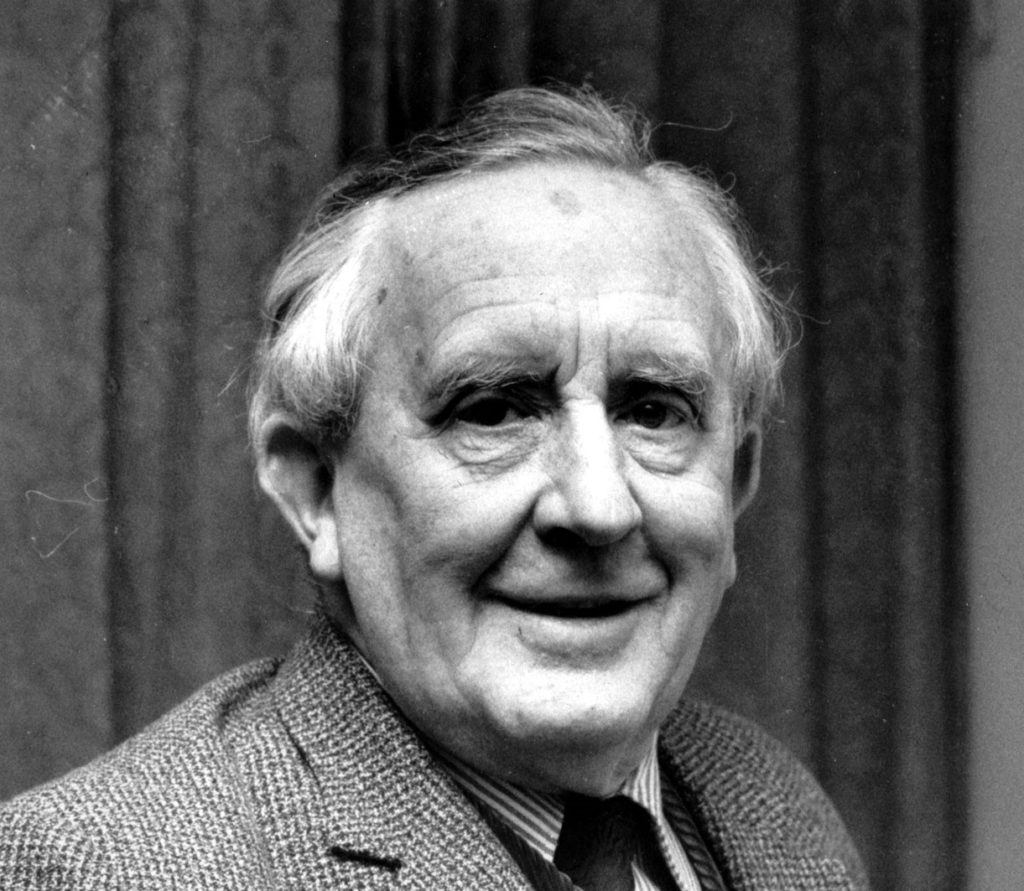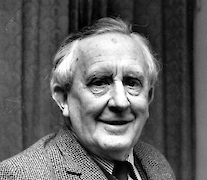☜ Click for full story text.
An American medieval historian has explained how J.R.R. Tolkien inspired her love for Welsh folk tales. Rebecca Fox Blok, who worked at the Medieval Institute, at Western Michigan University, said the theories of the linguist, scholar and author of the Lord of the Rings fantasy trilogy “encouraged” her to study Pedair Cainc y […]

J. R. R. Tolkien. By Frazio Dalla Casa. (CC 1.0)
An American medieval historian has explained how J. R. R. Tolkien inspired her love for Welsh folk tales.
Rebecca Fox Blok, who worked at the Medieval Institute, at Western Michigan University, said the theories of the linguist, scholar and author of the Lord of the Rings fantasy trilogy “encouraged” her to study Pedair Cainc y Mabinogi (The Four Branches of the Mabinogi).
The Welsh language mythological tales are the earliest prose stories in the literature of Britain.
Blok, who lives in Kalamazoo, Michigan, and studied Medieval Welsh Literature at Bangor University, said that the Welsh language and its literature “had gotten into my bones somehow”.
In an article for the North American Welsh Newspaper, Ninnau, she explained how Tolkien, who held a professorship of English language and literature at Oxford, gave a lecture in 1955 called “English and Welsh”, which she says, argued that “English philologists ought to study Welsh as carefully as they do Norse or French”.
The Welsh language was the basis for one of the languages he invented for the elves in his Lord of the Rings trilogy.
Rebecca Fox Blok said: “Unsurprisingly, the lecture is mostly about languages and their history — how English and Welsh impacted one another in their development — but it is also very revealing about Tolkien’s ideas of ethnic identity and the value of a language that many Englishmen of his era pooh-poohed as irrelevant, out-dated, and ugly.
“Many Welsh speakers will recognize my description of the disparaging attitudes concerning Welsh in the mid-twentieth century (and, indeed, today!).
“But in his lecture, Tolkien, unexpectedly, rejects such ignorant perspectives. The major thrust of the lecture is that English philologists ought to study Welsh as carefully as they do Norse or French.
“To be ignorant of Welsh is to be ignorant of an important part of the history of English, Tolkien argues.
“But he concludes, the real reasons that Welsh ought to be more studied are these: ‘Welsh is of this soil, this island, the senior language of the men of Britain; and Welsh is beautiful.’
‘Pierced my linguistic heart’
“Tolkien describes the great aesthetic pleasure he finds in the Welsh language, which he had even from a young age: ‘I heard it coming out of the west. It struck at me in the names on coal-trucks; and drawing nearer, it flickered past on station-signs, a flash of strange spelling and a hint of a language old and yet alive … it pierced my linguistic heart.’ This love of Welsh lasted throughout Tolkien’s life.
“His studies included medieval Welsh literature and Welsh even became the basis for one of the languages he invented for the elves of his famous trilogy of fantasy novels, The Lord of the Rings.
“For those readers of this esteemed publication who grew up with Welsh as a cradle-tongue, Tolkien’s fascination might sound odd. His raptures about the ‘satisfaction’ and ‘delight’ of the sound of Welsh ‘stirring deep harp-strings in our linguistic nature’ may even come off as comical.
“But for those readers who, like me, were introduced to the language later in life or have persisted to siarad Cymraeg outside of places where it is commonly spoken, this may ring as true for you as it does for me.
“Like Tolkien, my first tastes of Welsh, as a child, were in flashes of names. The strangeness of them to my anglophone ears thrilled something deep within me. I loved the way the words I slowly learned tasted on my tongue.
“When people wondered why I, an American with no Welsh heritage at all, should so want to study this language and its literature, I could only reply that it had gotten into my bones somehow — it delighted me.
“It’s nice when reading Tolkien’s lecture to learn that I am not alone in feeling that way.”
Source
[Full text is provided here in the event that the original news story is no longer available. If possible, please read the original story at Nation.Cymru.]

